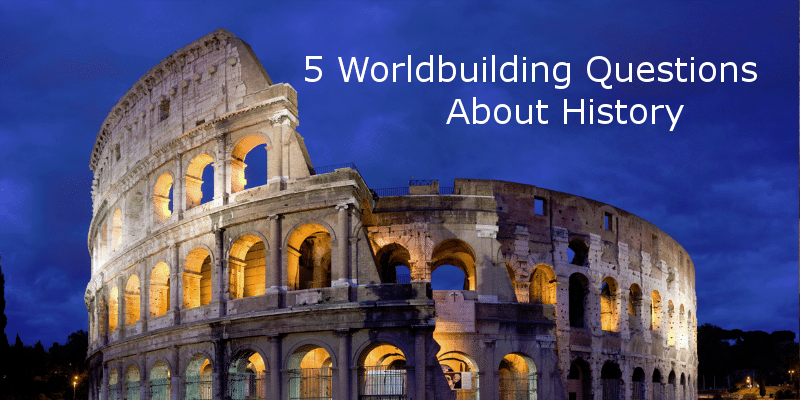- How far back does your history go? There’s actual history (everything that happened in your world), recorded history (what’s happened since people started writing things down), and history that matters (i.e. what will have bearing on your story). You may or may not have remembered history, which is similar to recorded history, but exists only in the minds of very old creatures (dragons, demons, gods, etc.). If you want your world to feel old, hint at what has been lost and forgotten; don’t have 10,000 year old empires still running strong. If you want the world to feel like it’s at a pinnacle, don’t let historical societies overshadow the present day.
- What conflicts shaped your story’s present day? In modern times, the Cold War didn’t make sense unless you understood the uneasy alliances of WWII. In turn, the start of WWII traced its roots to the decimation of of the German economy after WWI, which gave rise to fascism. Keep this sort of relationship in mind when building conflicts into your world’s history. You can either back the history out from your fictional present day, or play out historical scenarios on paper until you trace one to a point where you’d want to start a story.
- Who is remembered from bygone days (and why)? Julius Caesar died over 2000 years ago, but everyone still knows his name. We’ve got a month named after him (July), as well as a surgical procedure (caesarian section). Czar, Tsar, and Kaiser are all honorifics that echo his name. Earth history also includes Artistotle, Charlemagne, Alexander, Genghis Khan, and Napoleon. These figures lived anywhere from hundreds to thousands of years ago, yet they’ve been remembered. Decide who fills those shoes in your world.
- What civilizations have been lost? The Mayans. Carthage. Sumer. Atlantis (if you prefer to believe in it). The point is, not every civilizations makes it. What’s left behind is up to you, but the options for exploring old ruins, finding lost magic or technology, and discovering what led to their downfall are great wellsprings of story fodder.
- What events have given rise to idioms? And what would all this history be worth if it didn’t subtly impact people’s daily lives in the form of archaic references buried in everyday speech? Do people “render unto Caesar,” have a “Napoleon complex,” or your world’s equivalent? Some people, places, and events weave their way into the language by being such prime examples or notable exceptions that all other descriptions fail? Congratulations, you’ve got a new part of your world’s vocabulary.


0 Comments